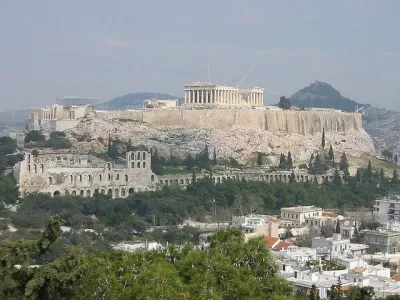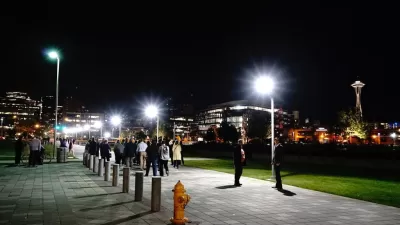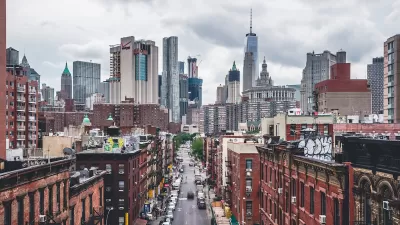As abstract as the study of philosophy may seem, it has to take place somewhere. Philosophy professor David Kishik posits that cities have influenced the development of philosophical ideas, from Socrates' Athens to William James' New York.

A great deal of philosophical thought, especially in moral philosophy, centers on the ways that people ought to relate to each other. It only stands to reason, then, that cities—the places where people come into contact with each other most intimately—have inspired some of the world's most important philosophers and philosophical ideas.
Writes David Kishik, "It might be enough to mention the critical importance of Athens to the birth of ancient philosophy with Socrates, Plato, and Aristotle; or the way that modern philosophy got its start in Bacon’s London, Descartes’s Paris and Spinoza’s Amsterdam; or the deep roots of American pragmatism in New York, where William James spent the first years of his life as a curious child, and John Dewey spent the last years of his life as a revered professor."
Kishik notes, though, that philosophy has not always embraced the city as such. He writes, "With (Jean-Jacques) Rousseau’s fame also came his deep aversion to the city: 'The manner of living in Paris amidst people of pretensions was so little to my liking. The cabals of men of letters, their little candor in their writings, and the air of importance they gave themselves in the world, were so odious to me. I found so little mildness, openness of heart, and frankness in the intercourse even of my friends. Disgusted with this life of tumult, I began ardently to wish to reside in the country.'" Philosophers have championed pastoralism and nationalism, in opposition to urbanism.
And yet, "the city tends to work as a zone that facilitates associations and interactions between many elements (ideas, commodities, skills, persons, interests, fortunes, desires, sensibilities, ideologies, stupidities). At least in theory, the city is not a container for lives but their meeting point, which is not to be confused with a melting pot. (A meeting point permits the differences of the parties involved. A melting pot turns them all into a single stew.)"
FULL STORY: Metrosophy: Philosophy and the City

Planetizen Federal Action Tracker
A weekly monitor of how Trump’s orders and actions are impacting planners and planning in America.

Maui's Vacation Rental Debate Turns Ugly
Verbal attacks, misinformation campaigns and fistfights plague a high-stakes debate to convert thousands of vacation rentals into long-term housing.

San Francisco Suspends Traffic Calming Amidst Record Deaths
Citing “a challenging fiscal landscape,” the city will cease the program on the heels of 42 traffic deaths, including 24 pedestrians.

Amtrak Rolls Out New Orleans to Alabama “Mardi Gras” Train
The new service will operate morning and evening departures between Mobile and New Orleans.

The Subversive Car-Free Guide to Trump's Great American Road Trip
Car-free ways to access Chicagoland’s best tourist attractions.

San Antonio and Austin are Fusing Into one Massive Megaregion
The region spanning the two central Texas cities is growing fast, posing challenges for local infrastructure and water supplies.
Urban Design for Planners 1: Software Tools
This six-course series explores essential urban design concepts using open source software and equips planners with the tools they need to participate fully in the urban design process.
Planning for Universal Design
Learn the tools for implementing Universal Design in planning regulations.
Heyer Gruel & Associates PA
JM Goldson LLC
Custer County Colorado
City of Camden Redevelopment Agency
City of Astoria
Transportation Research & Education Center (TREC) at Portland State University
Jefferson Parish Government
Camden Redevelopment Agency
City of Claremont





























